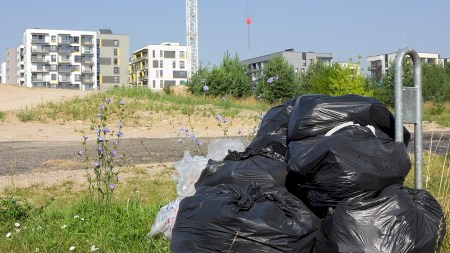A recent survey has revealed SA’s best and worst performing municipalities. Could poorly run municipalities be punished in next year’s elections?
Municipal elections are taking place next year and as usual politicians are making all sorts of promises. It's the same all over the world: elections tend to bring out the best in people who either run or want to run countries or local government. These folks will say just about anything in order to secure votes. Sadly, many promises are forgotten once the votes have been tallied.
This is particularly true in South Africa, but unlike those in many other parts of the world, our voters have a way of dealing with those who renege on election promises. They stage service delivery protests. While the reasons for these protests are varied (and often unknown) people are taking to the streets in ever growing numbers to voice their displeasure.
A recent survey conducted by South African Customer Satisfaction Index (SAcsi) highlighted that there is general dissatisfaction regarding municipal services across eight of the largest metropolitan municipalities in South Africa.
The SAcsi surveyed 3059 residents in a randomly selected sample of residents in the major municipal districts of Cape Town, eThekwini, Tshwane, Johannesburg, Ekurhuleni, Nelson Mandela Bay, Mangaung and Buffalo City. The results showed recipients of municipal services across some of the largest metropolitan municipalities have given them the lowest satisfaction score - 61.8 out of 100, up slightly from last year’s score of 60.8.
Interestingly municipalities such as Tshwane and the City of Johannesburg have, according to these polled, improved since the last survey was conducted.
Overall, Cape Town scored significantly higher than the average at 71.9 while eThekwini scored 3.6 points higher than the average at 65.4 out of 100. Tshwane and Johannesburg scored on par with an average of 61.5 (2014: 57.4) and 60.2 (2014: 57.5) respectively. All the other measured municipal districts scored below industry par: Ekurhuleni (58.3), Nelson Mandela Bay (51.8), Mangaung (51.5) and Buffalo City (47.1)
Professor Adré Schreuder, founder of SAcsi and CEO of Consulta, says there have been some interesting movements in the citizen satisfaction score. “Overall the national trust index score is slightly higher this year at 65.1, which means that citizens are a bit more trusting of what they are hearing from municipalities, likely as a result of delivery on promises.”
However, he does warn that citizen expectations are higher this year which will create a higher standard for municipalities to meet.
“Campaigning ahead of the municipal elections next year is likely to push expectations even higher, so municipalities need to put mechanisms in place to ensure that they can deliver on the promises they make. Already, the gap between expectations and delivery is very wide, with Cape Town emerging in the study as the only municipality which comes close to meeting its citizens’ expectations. Municipalities which scored below par (Nelson Mandela Bay, Mangaung and Buffalo City) recorded very low reliability scores,” he says.
He adds that the top three issues which feature in complaints about the worst performing municipalities revolve around keeping municipal areas neat and tidy, maintaining existing infrastructure and providing reliable services.
The verbatim comments from respondents lead us to conclude that citizen-centricity, reliability and trust that services will be delivered as promised are essential. As much as these comments feature as positive statements about better performing municipalities, citizens in the worst performing municipalities complain about the lack of delivery of municipal services such as refuse removal, deteriorating roads, problems with storm water drainage pipes and providing clean drinking water.





